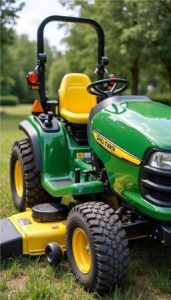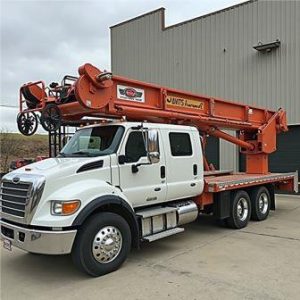Most people who require a vehicle or equipment for business purposes often find themselves weighing the options of financing versus leasing.
 Understanding the differences between these two methods can help you make an informed decision about which option is better suited for your needs.
Understanding the differences between these two methods can help you make an informed decision about which option is better suited for your needs.
When you choose financing, you’re necessarily taking out a loan to purchase the item outright. This means you’ll need to make regular payments until the total cost has been repaid. Once you’ve paid off the loan, you’ll own the item completely, allowing you to do whatever you wish with it.
This option is particularly appealing if you plan to use the equipment or vehicle for an extended period and want the freedom to modify or sell it in the future.
Additionally, owning the item allows you to build equity over time, which can be beneficial for your financial situation.
 On the other hand, leasing involves renting the vehicle or equipment for a specified period, typically 2 to 5 years, and paying monthly fees that can be lower than financing payments.
On the other hand, leasing involves renting the vehicle or equipment for a specified period, typically 2 to 5 years, and paying monthly fees that can be lower than financing payments.
At the end of the lease, you have the option to purchase the item, continue leasing, or return it.
This can be a more flexible option for you if you plan to upgrade frequently or if your needs might change over time. Leasing also often comes with warranties and maintenance packages, which can save you money on repair costs and ensure that you always have reliable equipment at your disposal.
One factor to consider when weighing your options is how often you need to upgrade. If you tend to use the latest technology or need newer models for your business, leasing may be a better fit for you.
It allows you to avoid the hassle of selling your old equipment and helps you always stay competitive with up-to-date tools. Conversely, if you’re looking for stability and long-term use, financing may make more sense as it leads to ownership.
Another aspect to think about is your tax situation. Lease payments can often be considered a business expense, which may be deductible on your taxes. Meanwhile, when you finance a vehicle or equipment, you may only be able to deduct the depreciation over time.
Depending on your financial goals and how you plan to use the item, this could significantly impact your decision.
Ultimately, choosing between financing and leasing should reflect your specific needs and financial situation.
Take the time to assess how you intend to use the vehicle or equipment, your budget, and your long-term goals. It’s also wise to consult with financial advisors or accountants to get a clear picture of what is most beneficial for you.
In making the decision, consider factors such as ownership, flexibility, tax implications, and how often you plan to upgrade. Both financing and leasing have their advantages, and the best option will be the one that aligns most closely with your personal or business needs.
Start Your Loan Application
Contact us now
To discuss your capital equipment financing with someone right now, please use the email form on our contact page. Thank you.






